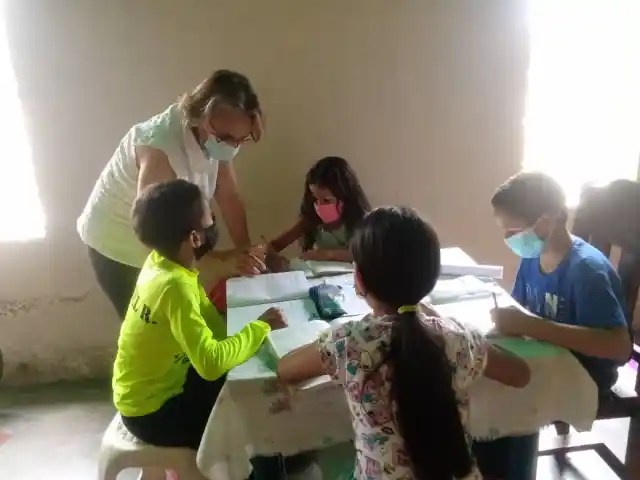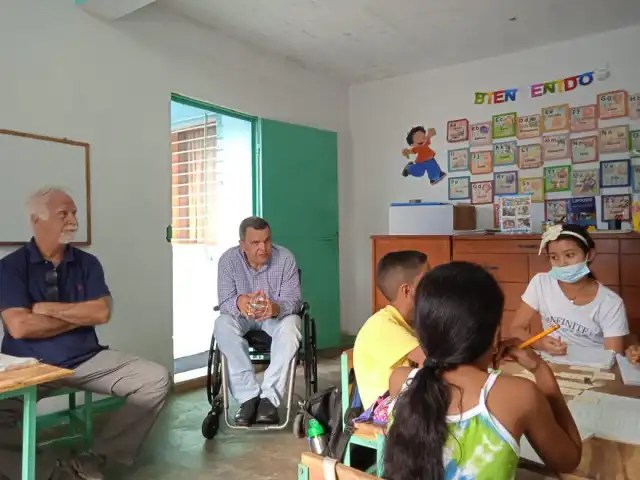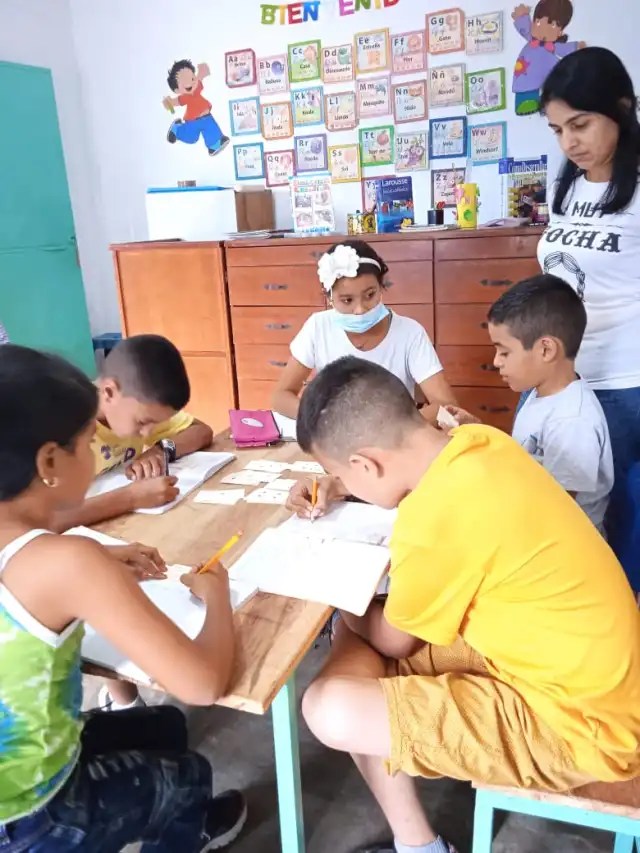
Faced with the collapse of the public education system, in Montalbán, Carabobo State, pedagogical alternatives called directed tasks or micro-schools are taking off.
Correspondent lapatilla.com
This was uncovered in a study by the academic association “Un Estado de Derecho” (UED), carried out between January and July of this year, which showed that there are at least 63 micro-schools in this municipality in the west of Carabobo State, which has an official enrollment for the 2021-2022 academic period of only 4,456 students, of which 2,113 are primary school students (46%), 1,392 highschool (31%), 885 pre-school (20%), 105 adult education (2 %) and 61 in special education (1%).
The investigation, which is the second carried out at the outside Caracas by UED (the first was carried out in Petare, Caracas), reflected that “within a general context of extreme poverty, where the formal educational system appears to be in ruins and practically non-existent. The so-called School Territory is made up of 25 institutions: 24 public and a dying private high school with 56 students.”
The 63 small learning centers or micro-schools were registered by UED through a census that covered all sectors of Montalbán. It was found that they care for 703 children and young people, a figure equivalent to 16% of the government register.
“They Arise Without Planning”

The investigation was directed by Antonio Canova, lawyer, specialist in Constitutional Law, professor at the Andrés Bello Catholic University (Ucab) and director of UED, under the guidance of Klaus Jaffe, chemist, professor emeritus and coordinator of the Center for Strategic Studies of the Simon Bolivar University.
From these surveys, it emerged that 66% of the enrollment of the unofficial units is made up of students from first to sixth grade.
“They arise without planning, they are the product of the free self-organization of people who voluntarily seek and find alternatives to the collapse of the government educational system,” explained Prof. Canova, noting that it is a global trend of rejection of standardized teaching, and that in Venezuela it manifests itself within the context of a humanitarian emergency.
The spontaneous micro-schools in Montalbán are attended by 22% of those enrolled in public primary education.
Poor Families Make A Huge Effort
The UED describes as a free educational market, the interaction between parents and teachers agreeing, outside of official regulations, on the conditions of contracting private education services. For example: the tuition rate is in dollars.
They refer that there are weekly and hourly forms of payment, and the average payment is 3 dollars a week.
90% of the children and young people who attend these low-cost payment centers are students from public institutions.
“We get the same as in Petare: poor families making an enormous effort to pay, in addition to what they already spend to stay within the official system, for the education of their children. And we say it again: the answer to why they do it seems as obvious as the country’s educational situation,” said the director of UED.
Micro-Schools During The Pandemic

63% of the teachers surveyed were already dedicated to giving “tares dirigidas” (directed tasks, special schooling) even before the pandemic, the research indicates. However, the forced confinement during the pandemic lockdown caused the number of students to increase.
The success of this modality lies in the fact that they are smaller groups and the classes are practically individualized, which seems to fit the student better. In these places, the students are not only reinforced with what is taught in their official educational centers, but they also provide them with new knowledge.
“A complete educational process takes place there. The data collected in Petare, and now in Montalbán, provide us with enough elements to suggest that it is in these spaces where children are really learning,” the report states.
UED highlighted another relevant finding: 62% of the contents taught in Montalban micro-schools are extracted from different free pedagogical sources, not from the indoctrinating Bolivarian curriculum.
Moonlighting Teachers?
Ana Chirivella is an active teacher, she has 14 years of experience. The low salary that she earns as a teacher and the pandemic crisis were factors that pushed her to reinvent herself.
“It is not a secret to anyone that it (teaching) was not enough to cover expenses and, second, with the pandemic many representatives sought support to help their children,” she said in an interview with Lapatilla.com
For her part, Nancy Serrano is 15 years education graduate and had always worked in private schools until 10 months ago when she made the decision to resign. She assured that despite the fact that she likes to be in the classroom, her quality of life was not what she desired, coupled with the fact that the school was far from her home, and the gasoline and transport crises played against remaining in the formal system.
“At home I realized that I wanted to continue teaching, and that’s where the idea of giving directed tasks arose and I’m doing well,” she highlighted. She explained that she charges $4 a week per child and sees five to six children per shift.
Both teachers agree that the most gratifying thing is to see how the students are overcoming their weaknesses and nurturing their strengths.
The study carried out by UED shows that 35% of the teachers of “directed tasks” made this decision out of vocational commitment, followed by 32% who did so motivated by economic need and the rest attending to the demand of the parents, a matter that the researchers see as a clear alignment of positive incentives.
Just over half (52%) of the teachers in these spontaneous schools also work in the formal education system: 92% in public institutions.
The teachers of these so-called micro-schools receive an average income of 126 dollars per month. This figure triples the basic salary, in bolivars, of the highest public level teacher, which at this date is equivalent to about $44.00 U.S. dollars a month.
Venezuelan Official Educational System Shows No Signs Of Improvement
Those who conducted the study concluded that “an improvement in the official Venezuelan system seems highly unlikely. Spontaneous micro-schools appear as immediate solution factors to mitigate school lag and, why not, test a new model based on the right to educational choice.”
Prof. Canova considers it valid that public organizations, with the support of the majority of development specialists, educational experts and human rights defenders, insist on a centralized and standardized educational model.
“What we question is that these actors continue to enable, the first ones legally, to prohibit, hinder or censor the freedom of families, especially the poorest, to benefit from alternative, quality and accessible ways to educate their children.”

